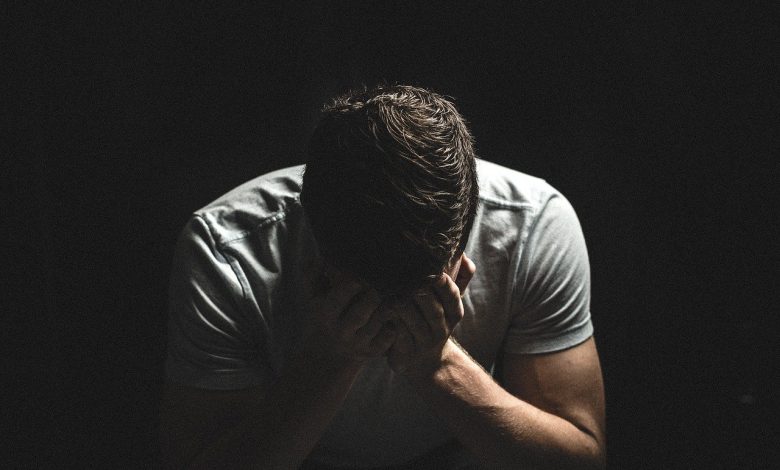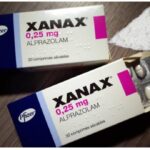How Cocaine and Xanax Ruined my Life

What is cocaine?
Cocaine is a powerfully addictive stimulant drug made from the leaves of the coca plant native to South America. Although health care providers can use it for valid medical purposes, such as local anesthesia for some surgeries, recreational cocaine use is illegal. As a street drug, cocaine looks like a fine, white, crystal powder. Street dealers often mix it with things like cornstarch, talcum powder, or flour to increase profits.
There is a growing practice of mixing cocaine with prescription drugs such as the stimulant amphetamine, benzodiazepines, or synthetic opioids, including fentanyl. Adding prescription drugs to cocaine is especially risky when people using cocaine don’t realize it contains this dangerous additive. Increasing numbers of overdose deaths among cocaine users might be related to this tampered cocaine.
What is Xanax?
Xanax is a brand of alprazolam, a powerful benzodiazepine that is used to treat anxiety and panic disorders by decreasing abnormal excitement in the brain. The medication comes in the form of a tablet that quickly dissolves in the mouth, an extended-release tablet, or a concentrated oral solution.
Benzodiazepines can have therapeutic anti-anxiety, anti-convulsant, muscle relaxing, and sedative effects. Xanax works by increasing the effects of a brain chemical called gamma-aminobutyric acid (GABA), which promotes calmness and produces a relaxed feeling. The drug decreases the level of excitement in the brain to treat anxiety and panic disorders.
Alprazolam is among the most prescribed benzodiazepine drugs in the U.S. and is among the benzodiazepines most often found in the illegal market, according to the Drug Enforcement Administration.
Xanax is often prescribed for mental health disorders related to anxiety. It can be used to treat general anxiety, panic disorder, social anxiety disorder, and phobias. It can also be used to treat seizures. For people who suffer from anxiety, it can create a sense of relief to focus on their lives without issues of anxiety or phobias plaguing them. When used as prescribed, it can calm people down and make them feel relaxed.
Xanax can also reduce physiological symptoms of anxiety and fear, such as a racing heart or hyperventilation. These drugs are so often prescribed because they work well on anxiety and they’re cheap.
However, many people use Xanax for nonmedical reasons, taking it in larger doses or more frequently than prescribed because it can create a euphoric feeling, especially at higher doses. Xanax tends to start acting quickly after a person takes it, and the euphoric effects of the drug will usually manifest themselves within about an hour after taking it.
A tendency has grown in some social circles to view Xanax, as a type of “alcohol” in pill form. It’s become socially acceptable among these groups of friends to get together and share Xanax with one another. Of the 30.5 million people who used benzos in 2015, 17.1% misused them. Misusing Xanax or combining it with other substances like alcohol can amplify its effects, but the results can also be deadly.
Along with recreational use, many people rely on Xanax to deal with issues like situational anxiety without having to commit to therapy, which can be expensive and time-consuming. Xanax is popular in America, for example, because there is a tendency for people to love things that are looked at as a quick fix. Xanax isn’t a long-term medication, so some people “take it when they need it” for relief. The temporary relief they feel can help in a fast-paced world with constant exposure to negative world news, stressful jobs, and uncertainty.
How Cocaine and Xanax Ruined my Life
In this section of the article, we will be sharing the stories of people whose lives were ruined by Cocaine and Xanax abuse.
A distraught wife and mother wrote “Hi, my husband is a cocaine addict, I’ve been married for 10 years been together for 16 years. My husband is my best friend, a very loyal, honest, and loving man before addiction took hold.
My husband was practically teetotal before trying cocaine once when he was 30, given to him by a good friend on a day to watch the football. He soon became hooked but this was kept a secret from me for 4 years. He would use it when I and my children were asleep in bed. All unknown to us. His behavior changed massively over this time, paranoia, moodiness, and generally being off with us and everyone else, these were the signs, but I failed to see the cause. I often thought he was having a midlife crisis or experiencing some kind of depression.
Then the night I found out it was cocaine, was the night I was pregnant with our 5th child, he went out to buy dinner and came home intoxicated. He lied and denied everything. We had an explosive argument and shamefully I threw a cup at him. He was enraged and left!
He went to stay with a friend who doesn’t use drugs. During his period away, his behavior became worse, he hated me, he blamed me for everything, he lost his job “that was apparently my fault” as he failed a drug test. He started trying to move on, messaging other women on Facebook, telling them we had been separated ages ago and how I was abusive and how he didn’t love me. (This man adored me, everyone said the same, he’d ring me roughly 4 times every day just to talk to me and see how I and the children were, during the whole of our relationship).
He stole two cars belonging to relatives and drove intoxicated to pick up drugs. He was arrested for the one and charged.
He bought cocaine on the way to the cinema when he was with our children and used it throughout the film, making regular trips to the bathroom. I could go on and on! despite most of these occurrences, he still didn’t think he was an addict, he thought it was probably a bit of an issue, but he definitely was not an addict! I could see the horror on his face when it was ever suggested. To him, heroin or crack users were addicts, not him. This caused me great upset as if he wasn’t an addict, that meant these were all choices.
He went to live with his mum even further away and being so far away from us made him realize what he was missing. He got a job and trained hard at the gym, but never attended meetings. He came back and was clean for 6 months just in time for our baby to be born. He was fab with her and went back to being the fab dad to our other children that he was pre drugs. I was so happy that I felt I had the old him back.
Two weeks before Christmas he relapsed, he was given some community services, as apparently, that’s a thing, it’s a jolly boy outing for drugs. I was devastated, he didn’t come home and confess, the lies started straight away and this time he couldn’t convince me, I knew he was using.
He spent the next few weeks using and sleeping rough in our garage, as I wouldn’t let him in our house because I don’t want drugs around my children, especially now I’ve got the baby.
The bit that hurt me the most was during one of these reckless nights, he didn’t come home for me to go to my work party, I found him slumped in the pub, alone with the barmaid. He’d apparently told her she was an attractive girl! Not in a pervy way, she said it was said in a conversation, but he was also missing his wedding ring. When I asked him why, he denied everything, he said his ring was off before he went out and swore on our children’s lives. He’s not the sort of person to cheat, at all! so again it confused me.
He then confessed to saying it in the hope she’d flirt back, to make him feel good about himself, as I’m always threatening him with divorce and he feels like a scum bag, at the best of times. I’ve said horrible things to him in the past, that have made him feel insecure. Once in temper I told him he wasn’t attractive to me. This was said in anger because he was behaving appallingly, but it seemed to stay in his head.
He still swore he would never cheat though and that he loves me more than anything. I think he’s doing this because he knows with me now, that he can no longer hide his addiction, I will eventually leave him and he’s putting feelers out for moving on. However, he says you don’t think like that when you’re on drugs, there’s no logic behind it, or thinking of moving on. You just act out on what you’re thinking at the time, every time you feel differently.
It’s all still so confusing for me. I just wish he’d go back to the man he was before. It’s so horrible to see someone you love, go on self-destruct and there’s nothing you can do for them.”
Aaron Dimler was on his way. The captain of his football team at Roseville High School, he had a job, a long-term girlfriend, and a scholarship worth $240,000 to study and play football at Macalester College.
Then he started taking Xanax. When he saw that University of Minnesota wrestlers might be involved in a ring to buy and sell the same anti-anxiety drug he was abusing, Dimler chose to speak up.
“I thought I was an anomaly — a college athlete that screwed up my football career and my school career by using drugs,” he told the St. Paul Pioneer Press. “But when I saw that, I knew it wasn’t just me. I knew it was a bigger problem.”
Dimler, 19, has completed drug treatment, more than two months after he was admitted for in-patient care. After flunking out of school. After the withdrawal seizures. After waking up in his girlfriend’s car surrounded by the flashing lights of White Bear Lake police squad cars.
He suspects he had been passed out for hours and still doesn’t remember everything about that night. But one thing, he said, was immediately clear.
“I knew at that point I was going to jail, and that it was not going to end well,” he said.
The story of how drugs like cocaine and Xanax ruin lives did not start today. The New York Times shared Tony Elliott story thus “ I was fortunate. Facing the barrel of a coke dealer’s .357 Magnum revolver brought me to my senses and helped me realize that I needed help, that cocaine had taken control of my life. Len Bias and Don Rogers were not as lucky. They didn’t get that kind of warning.
Let me share with you how this problem started for me. There were two related sources. First came the kinds of pressure that I faced as an athlete growing up in the inner city.
I grew up in Bridgeport, Conn., in a neighborhood where drug use was not looked down on by other kids and young adults. It was even seen as a means of rebelling.
I was using drugs and alcohol before I became an athlete at the age of 14. Being an athlete did not necessarily mean that drug use was over. Your prestige among your peers didn’t diminish. In fact, I think my macho image was enhanced when people saw I was able to use and still perform as an athlete. Boozing it up is supposed to be a sign of manhood for the young athlete. Now it’s coke, the champagne of drugs. It’s a status symbol. It gives you the illusion of power and masculinity. It made me believe that nothing could happen to me. I’m sure Len Bias and Don Rogers felt the same way.
Like all high school athletes, I was asked to make sacrifices that other kids did not have to make. We were told to give up sex, partying, and alcohol. I often felt that I was playing for the coach and not for myself. I found myself trying to get away with as much as I could. Avoid the exercise and drills if the coaches weren’t watching. Stay up as late as you could. Drink and use drugs if you could get away with it. I got away with it.
As a young adolescent, I had difficulty trying to confirm my sense of identity. I desperately needed to be accepted. I always wondered if I was liked only because I was a football star or because I had drugs to pass around. The delusions are easy to build up but painful to take down.
As a star high school athlete, there were plenty of pressures that went along with the attention. I often felt that the reputation of our entire school was being carried on my shoulders as I played each game. Was I going to be a hero this week or a zero? Drugs and alcohol were a welcome relief from this pressure from the coaches, schoolmates, the community, and, most of all, from myself. I used drugs in response to sports success. The thrill of victory in the competition, for me, is a natural high. I experienced the same euphoric feeling from cocaine that I felt during game conditions. Therefore, as an athlete, I feel that I was more susceptible to cocaine addiction than the average person. I feel that many athletes are. Those who have never tried it are very fortunate because after a while it is no longer enjoyable. It was like a demon in me that made life miserable as I constantly sought that euphoric feeling that was never there.
The second set of reasons for my drug use came from the fact that as an athlete, all authority figures systematically removed responsibility from me off the field. I had fewer chores, I had to study less, I got away with more in school, I never had to make plans. Everything was done for me. All I had to do was play the game. This made it difficult for me to accept responsibility for my own behavior. They were wrong for doing this and I was wrong for allowing it to happen, but in the end, I was the one who almost died.
I knew that my grades in school were directly related to my performance on the field. If I played better, I could study even less. I began to understand the rules of the game.
In college, the system became even more exaggerated. I was given money, apartments, and cars. I didn’t have to do anything but play ball. Nobody doubted my intelligence. But nobody asked me to study. I was a football star.
I was heavily into drug use by my senior year, 1981. I knew I was invincible the next spring when I was drafted and signed by the New Orleans Saints. Not only was I signed but I got a $30,000 signing bonus!
As a professional, when the athlete returns to his community the easiest way to keep ties with his former associates and to assure him that he has not forgotten ”where he came from” is to use drugs or share his earnings with his friends by treating them to drugs. I spent the $30,000 on a two-week cocaine binge in my hometown.
Over a four-year period, I believe I spent close to a million dollars on cocaine for me and my friends. I sold everything I had, ruined my first marriage, became a petty criminal, and finally peered down the barrel of my own personal Grim Reaper. Desperate, I had planned to hold up my dealer with a cheap pistol, but when the door opened I was on the other side of a .357 Magnum. At that time, a light went on and I was saved.
Yet I can see how Len Bias and Don Rogers didn’t recognize the imminence of their own ”suicides.” One night I sat alone with a pipe. There was a little bit of coke left when I began to feel sharp chest pains. I knew I was in trouble yet I chose to take that last hit and not deal with my heart. That’s how powerful the stuff is. It’s so powerful that Don Rogers took a dose just days after Bias’s death. The ultimate tragedy of their deaths will be if we, as athletes and as a society, treat their deaths as isolated incidents. With millions of high school athletes abusing chemicals and alcohol, we are facing a monster near victory. Drug testing might help but it isn’t the key. Education is. If the deaths of two physically gifted men at the top of their games doesn’t scare us enough to make us see the monster eating our souls, what will?
I wish I knew the answer. I do know we have to be able to see that it is a monster and that we are all its potential prey.
If you mix cocaine and Xanax, it can be dangerous or deadly. It can be hard for your body to process these substances and you may experience toxicity or an overdose. When cocaine and Xanax are taken together, they also have oppositional effects, and the negative side effects of each can be made worse. You’re at a higher risk of developing a polydrug abuse problem as well.
You should never take cocaine and Xanax together, and you shouldn’t take Xanax without a prescription. Both cocaine and Xanax can be dangerous on their own, and together even more so.
Using cocaine and Xanax together increases the speed at which the drug reaches the brain. This results in a quicker onset of action that increases the likelihood of dependence and addiction. When this happens, the addict will seek for illegal ways of buying Xanax which often entails purchasing the drug on the street. Black market Xanax has been implicated in recent overdoses because most of them do not contain alprazolam but a far more dangerous drug known as fentanyl.
Using fentanyl laced Xanax with cocaine can be deadly because it takes very little to produce a high with fentanyl. This is especially risky when people using fake Xanax and cocaine don’t realize they contain fentanyl as a cheap but dangerous additive that is 50 to 100 times more potent than morphine.





